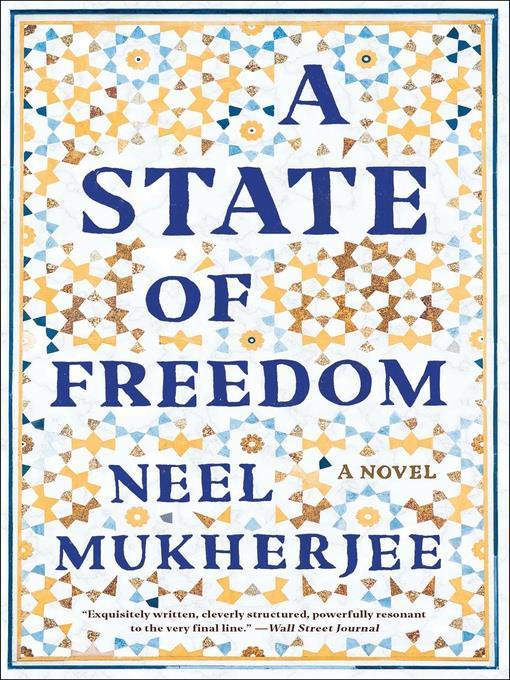
A State of Freedom
A Novel
کتاب های مرتبط
- اطلاعات
- نقد و بررسی
- دیدگاه کاربران
نقد و بررسی

September 1, 2017
In this follow-up to the Man Booker-short-listed The Lives of Others, various narratives link an Indian-born father and his American son visiting India; the construction worker they're shocked to see fall to his death; an indigent man and his bear, related to the worker; an Indian-raised, London-based man interested in his parents' Mumbai cook; and a revolutionary-minded servant girl.
Copyright 2017 Library Journal, LLC Used with permission.

Starred review from October 16, 2017
Freedom, as defined by the characters in Mukherjee’s brutally honest and haunting latest novel (after The Lives of Others), is a relative state. Most of them are striving to transcend lives of grinding poverty and degradation in contemporary India, where, though the “untouchable” designation has been abolished, the vicious caste system still victimizes village dwellers and domestic workers. Lakshman has abandoned his family and his dismally poor village to travel with a dancing bear (the bear “dances” when a rope is jerked painfully through his nose), only to realize that he has lost everything and that the bear is his only friend. Renu is a domestic cook in Bombay, working herself to the bone and juggling many jobs in order to pay for her nephew’s education. Milly is forced to rely on a man she does not know in order to escape slavelike servitude to her employers: “She had been untethered, set free, when all she wanted was the safety and security of not being alone.” Soni, who seeks freedom through activism with the Communist Party, discovers she is a prisoner of doctrinal subjugation. An unnamed father comes home to India from America to show his young son his heritage only to tragically realize that he can’t escape the ancient violence that lies simmering under the surface. Seen against a pitiless landscape of primitive villages and hellish urban slums, and the extremes of scorching heat and billowing monsoon rain, this is a compassionate, deeply felt tribute to India’s forgotten people who strive to triumph over subjugation. With its mixture of prose styles and narrative voices, Mukherjee’s novel is a literary achievement.

November 1, 2017
Five diverse lives in India are traced and linked, exposing the aching gulfs in experience and opportunity that exist in a complex nation.Particle physicists, Maoist terrorists, punitive employers, servants, and emigres all have roles in Mukherjee's (The Lives of Others, 2014, etc.) third novel, which is composed of interwoven short fictions moving between seething cities and rural life at its most impoverished. Themes of money, work, politics, survival, and women's roles connect the characters. In Bombay, an elderly couple with a new cook welcomes home their liberal son, now living overseas, on his annual visit. His keen interest in food and research for a cookbook lead to awkward efforts to befriend the cook, resulting in a visit to her family's home, a trip seamed with shame, pity, and wonder. Elsewhere, a poor villager, crushed under the burden of trying to provide not only for his own family, but his brother's, too--the brother has gone to find work on construction sites in the cities--is relieved, perhaps, by the discovery of a bear cub. Having trained the bear to "dance"--an unbearably cruel process--man and animal begin a life together on the road and a kind of parallel existence, begging for food and money, debased and suffering. The fate of the absent brother is glimpsed in the sinister, haunting opening of the book and confirmed in its final section. The London-based Mukherjee surprises once again with the form of his storytelling while confirming anew the depth of his empathy. His characters' life journeys are often painful while his descriptions of their circumstances are unsentimental, vivid, unsparing. Above all there is compassion here, alongside a focus that depicts gross inequities with a grim tenderness.A calm, compelling, unshrinking portrait of humanity in transition; both disturbing and dazzling.
COPYRIGHT(2017) Kirkus Reviews, ALL RIGHTS RESERVED.

























دیدگاه کاربران